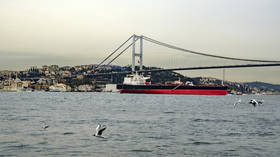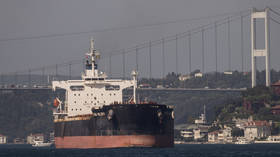NATO state's Russian oil imports hit historic high

Türkiye has become the largest importer of Russian energy in the Western Hemisphere after many European countries halted most Russian oil and natural gas imports, Reuters reported this week.
Despite being a NATO member, Türkiye has chosen not to cut ties with Russia over the conflict in Ukraine, and has instead deepened economic cooperation and bilateral trade.
According to calculations by Reuters, based on London Stock Exchange data and traders’ estimates, Turkish companies have saved around $2 billion on energy bills in 2023 by boosting imports of discounted Russian oil and refined products.
“Ankara wants to buy more from its neighbor despite Western sanctions,” the outlet wrote.
Data reportedly shows that Russian Urals crude oil shipments to Türkiye jumped to an all-time high of 400,000 barrels per day (bpd) in November 2023, accounting for some 14% of Russia’s overall seaborne oil exports last month.
Supplies are expected to rise further in the coming months, Reuters said, citing trading sources.
Türkiye’s imports of Russian diesel, heating oil, jet and marine fuel also skyrocketed 200% in January-November 2023 to some 290,000 bpd.
Traders say Ankara has been paying between $25 and $150 less for a ton (between $3.30 and $20 per barrel) of Russian diesel this year compared to prices for similar grades in the Mediterranean. For crude, it reportedly had discounts of between $5 and $20 per barrel.
“Cheaper energy imports have helped Ankara narrow its trade deficit and lessen pressure on its currency, which devalued 30% so far this year,” Reuters wrote.
Despite the US warnings that Türkiye could face penalties if it is proven to be helping Russia bypass Western restrictions, Ankara has insisted it had no plans to support the sanction policy on Moscow, arguing that “our own benefit and prosperity come first.”
For more stories on economy & finance visit RT's business section













